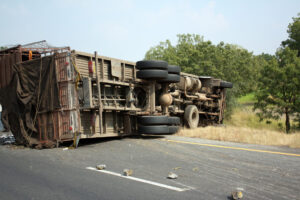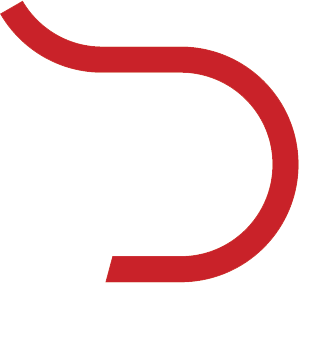Key Truck Injury Takeaway
- Truck accident cases present a unique set of challenges for lawyers, including federal regulations, catastrophic injuries, and complicated liability. Victims need specialized legal aid to navigate these challenges.
- Federal trucking regulations like HOS rules help determine liability. Violating these rules can make or break a case.
- Additionally, severe injuries from truck accidents often necessitate long-term medical care, placing further financial and emotional strain on victims and their families.
- Liability in truck accidents can be complex and may include trucking companies, drivers, and even manufacturers. Investigation is necessary to identify liability.
- By choosing a seasoned truck accident lawyer in Inver Grove Heights MN, you benefit from someone who knows the local laws, who has access to local investigative resources, and who is prepared to go to trial if necessary.
- Knowing the ins and outs of the Minnesota claim process, from evidence collection to negotiating with insurance companies, is key to obtaining fair compensation for accident victims.

Truck accident lawyers in Inver Grove Heights, MN, specialize in providing legal support for individuals involved in commercial vehicle collisions. These lawyers deal with complex laws, insurance claims and liability disputes to secure just compensation for victims. With knowledge of Minnesota traffic laws and federal trucking regulations, they walk clients through the legal process. They strive to protect clients’ rights and obtain positive results in difficult situations.
Why Truck Accidents Are Different
Truck accidents are not the same as car accidents – they’re more complicated, and their aftermath is often devastating. These distinctions arise from strict federal regulations, commercial involvement, catastrophic injuries, and complex liability. All of them make these cases more complex and difficult.
Federal Rules
Numerous federal regulations govern the trucking industry. The FMCSA sets forth specific commercial vehicle and driver requirements. These range from HOS rules, which cap the number of consecutive hours a driver can drive to avoid tiredness-related crashes. Any breach of these rules, whether falsified logs or simply driving too many hours, can directly affect liability in an accident.
Vehicle regulations are just as strict, including periodic inspections, appropriate tires and required markings. Trucking businesses have to comply with policies that include drug and alcohol testing, employee qualifications, and financial responsibility. According to the Minnesota Department of Transportation, for instance, motor carriers are required to keep driver qualification files including medical certificates, driving history, and annual records. Compliance failures can make or break a case.
Severe Injuries
Because of the size and weight of big rigs or 18-wheelers, commercial truck accidents usually result in catastrophic injuries. Victims can have long-term medical problems, like spinal cord damage, traumatic brain injuries, or severe fractures that require significant rehabilitation. These injuries take a toll on continued treatment and cause extreme financial distress from lost wages and piling medical expenses.
Aside from the impact itself, the emotional toll is deep. Victims and their families endure stress, grief and trauma on top of an already difficult recovery process. For instance, a family might have difficulty with supporting not only the injured party’s physical recovery but their own emotional health — an enduring strain.
Complex Liability
Truck accident cases frequently include several different parties, which can complicate liability. Besides the driver, there may be other parties liable such as the trucking company, manufacturers, and maintenance companies. For example, a faulty brake system could involve the manufacturer, whereas a badly maintained truck might involve the company.
Figuring out who’s at fault demands extensive investigation–examining driver logs, vehicle inspections, and compliance records. Minnesota’s comparative negligence laws (which allow liability to be shared) add another layer of complication to claims. There are insurance disputes too, as companies may fight over their chunk of fault, further complicating matters.
Choosing Your Inver Grove Heights Lawyer
When it comes to the intricacies of truck accident cases, choosing the right lawyer with the right expertise and a good approach can mean everything. Local insight, targeted experience, investigative sources, trial preparation, and transparent fees—these are things to consider when choosing your Inver Grove Heights lawyer.
Local Court Knowledge
A lawyer who knows the local Inver Grove Heights courts and judges is a definite benefit. Local lawyers know the ins and outs of Minnesota laws, including statutes of limitations, which are essential for bringing a suit before it’s too late. Their court procedural expertise and understanding of what courts expect can minimize delay and maximize efficiency.
A local lawyer is likely to know other legal professionals there — including court staff and opposing counsel. These contacts expedite negotiations and promote easier communication during the legal process. This local insight can be invaluable in trucking accident cases which can be complex.
Specific Case History
Selecting an experienced truck accident lawyer is key. Truck accidents tend to have their own set of issues, like federal trucking laws and commercial insurance. If you hire a lawyer who has handled similar cases – representing victims and trucking insurers alike – they can expect the challenges and develop strategies accordingly.
Checking a lawyer’s former case results is just as significant. Track record of winning compensation for clients shows they can negotiate and go to trial. A lawyer with case-specific strategies may adjust tactics to suit your particular situation, boosting your likelihood of success.
Investigative Resources
Truck accident cases need comprehensive investigations. Attorneys with access to the latest tools — like accident reconstruction experts — can construct more compelling arguments. They examine crash scenes, car data and conditions like weather to determine liability.
Working to gather crucial evidence, such as black box data and witness statements, is another. An experienced legal team knows what to look for when investigating, finding details that may be missed, like driver fatigue or maintenance violations. These details are essential for building a strong argument.
Trial Readiness
Not every case settles. Your lawyer should not hesitate to take your case to trial. Trial attorneys know how to put on evidence, make compelling arguments, and fight for the highest settlement. Trial advocacy skills make sure your interests are argued effectively in front of a judge or jury.
Transparent Fees
Knowing a lawyer’s fee structure upfront is essential. Most injury lawyers operate on contingency, so they only collect if you do. This setup reduces financial hazards for clients. Transparency cost ensures no surprise and opting for an attorney who doesn’t hide behind additional fees means trust.
The Minnesota Claim Process
Here’s what it takes to file a personal injury claim in Minnesota after a truck accident. Knowing what the law requires and doing the right things can make a big difference in your case. Here’s a step-by-step outline of this process:
Initial Steps
Triglycerides are the subcutaneous fat cells that exist in your body. Even if injuries seem minor, they could exacerbate and any medical records is crucial evidence.
Once safety is guaranteed, reporting the accident should be equally a priority. Report to the police and have them file a report. At the scene — collect evidence like photos of damages, road conditions, and witnesses’ contact info. These nuances can be very important in assigning fault.
Getting advice from a personal injury lawyer early helps clear up your rights and the viability of your claim. To this stage, it’s important to thoroughly catalogue injuries and property damages. These documents assist prove your claim when negotiating with insurers or arguing your case in court.
Building Your Case
Your case is built on medical records and accident reports. These papers not only establish the severity of your injuries but tie them to the accident.
Pinpointing all responsible parties is important. Because Minnesota is a comparative negligence state, you can seek compensation even if you are partially at fault, as long as your percentage of fault is less than 50 percent. Several parties – truck drivers, employers or vehicle manufacturers – may be jointly responsible.
Expert witnesses will bolster your claim. Medical professionals, accident reconstructionists, or economists can all testify to back up your points.
Lastly, constructing a timeline of events brings organization to your claim. Make this timeline as comprehensive as possible, including everything from the accident to medical treatments and other financial losses.
Negotiation Phase
- Always present evidence clearly and concisely during negotiations.
- Please don’t settle for the first settlement offer; it’s usually less than you deserve.
- Get all your damages, including future medical expenses.
- Stay professional and don’t be emotional with insurers.
Having an attorney during negotiations is paramount. They guard your rights, fight back against unfair strategies, and demand the highest possible compensation. You need patience — settlements in Minnesota can take six months to two years.
Calculating Your Claim’s Value
Calculating the value of your truck accident claim. We need to account for real and non-real losses to remunerate justly. Below is an overview of key considerations:
| Factor | Explanation |
| Economic Damages | Direct financial losses, such as medical bills and lost income. |
| Non-Economic Damages | Intangible losses, including pain, suffering, and emotional distress. |
| Punitive Damages | Compensation meant to punish gross negligence or misconduct. |
| Comparative Negligence Impact | Reduction in claims if the victim is partially at fault. |
| Future Losses | Costs or losses anticipated over time, like ongoing care or reduced earnings. |
Economic Damages
- Medical expenses, including hospital bills, physical therapy, and prescriptions.
- Lost wages due to time off work during recovery.
- Future surgeries, rehabilitation or long-term care.
- Loss of earning capacity if you can’t return to work due to injuries.
- Property damage, such as vehicle repair or replacement costs.
It is crucial to record all monetary damages. Save receipts, invoices, and pay stubs to back your claim. For example, continued care associated with permanent injuries can lead to high future costs. Accurate records of these costs are necessary to compute a reasonable settlement.
Loss of earning capacity is another that needs some reflection. If say a truck accident disables an individual from returning to their former profession, their claim needs to reflect life-time income loss. Meticulous documentation and expert witnesses can assist in validating these assertions.
Non-Economic Damages
- Pain and suffering.
- Emotional distress or trauma.
- Loss of enjoyment of life or activities.
- Loss of companionship or consortium.
Non-economic damages are the hardest to quantify since they don’t have a price tag. Courts frequently use medical records, psychiatric evaluations, or personal testimonies as a basis for measuring these losses. For instance, a traumatic brain injury can significantly change the quality of someone’s life and deserve high damages.
Legal expertise is worth its weight in gold in these situations. A good lawyer knows how to present the evidence so that your non-economic damages are maximized. They make sure all of the victim’s pain is included.
Punitive Damages
These are given in cases of gross negligence–like reckless driving or intentional wrongdoing. They exist to punish the guilty party and discourage similar conduct. These damages are uncommon and usually need evident proof of outrageous negligence.
Establishing a claim for punitive damages depends on tangible proof such as witness testimony or accident reconstruction. For example, a trucking firm that turned a blind eye to safety could bolster an argument for punitive damages, which could significantly increase total compensation.
Compassionate Support for Victims
In addition to legal expertise, burn and birth injury victims require sympathetic consolation. These life changing moments impact entire families and require not only emotional strength but practical advice. Compassionate lawyers like those at The Trujillo Law Firm bridge this gap, providing clarity and advocacy during challenging times.
The Hidden Opponent: Insurance Tactics
If you’ve been in a truck accident in Inver Grove Heights, MN, and you want to get compensated, it’s important to know the tactics insurance companies employ. These corporations frequently put maximizing their own or their stockholders’ profits ahead of properly paying victims using insurance tactics that are confusing, intimidating, and sometimes downright unfair.
One example is that they’ve been known to stall claim processes or fight over the seriousness of injuries. Alternatively, insurance companies can question medical reports or demand multiple evaluations to cast doubt on the injury’s severity. This can exacerbate claimants and drive them to accept less than they’re due. Insurance adjusters will prey on the injured, knowing that financial hardship or emotional turmoil will prompt them to accept a quick, small settlement.
Insurance adjusters are a big part of these tactics, and they’re often quite charming — or at least appear to be — to do the company’s bidding. They could employ legalese or convoluted forms to baffle claimants, obscuring the policy nuances or actual worth of a claim. For example, an adjuster might minimize long-term medical bills or future lost wages, causing claimants to settle for less than what they deserve. Some adjusters will even use intimidation or underhanded threats to squash the negotiations.
Another disturbing practice are investigators. Insurance companies might check social media pages or obtain data like phone records, looking for contradictions or ammunition to chip away at claims. For instance, a snapshot of a claimant doing something seemingly routine, even if unrelated to their injury, can be argued to prove the damage is not as significant. These predatory strategies can turn an already harrowing circumstance even more overpowering for victims.
To fight these battles, you’re going to need a lawyer. A seasoned truck accident attorney can shield victims from crooked tactics and protect their interests. Lawyers know how to fight through confusing insurance policies, how to fight back against their bad-faith tactics, and how to get you a fair settlement. They manage adjuster communications, making sure claimants don’t blurt out something that can hurt their case. With a lawyer fighting for them, victims can concentrate on healing knowing that someone is fighting for fair compensation.
Conclusion
Truck accident lawyer in Inver Grove Heights claims can be overwhelming, but the right truck accident lawyer in Inver Grove Heights really makes a difference. These cases are uniquely complex, from dealing with trucking regulations to combating insurance maneuvers. A talented lawyer understands how to defend your rights while fighting to achieve reasonable compensation for your damages.
Selecting someone who knows Minnesota’s laws and has dealt with truck accident cases means you’ve got someone who knows what’s coming. They’ll steer you through the claims process, determine a reasonable value for your case, and hold insurance companies accountable.
If you or a loved one are seeking guidance following a truck accident, contact a reputable attorney. Their backing can propel you ahead with assurance.
Frequently Asked Questions
What makes truck accidents different from car accidents?
Truck accidents are different — they may involve larger vehicles, more severe injuries, and complex regulations. They can involve multiple players — trucking companies and insurers — that complicate dealing with claims.
Why should I hire a lawyer for a truck accident in Inver Grove Heights?
As a local, they know Minnesota laws and how to deal with trucking companies and insurers. They can help protect your rights, collect evidence and negotiate a fair settlement.
How is a truck accident claim calculated in Minnesota?
Claims include medical costs, property damage, lost income and pain and suffering. Only an experienced lawyer will be able to fully analyze all the factors to help determine the full value of your case.
How long do I have to file a truck accident claim in Minnesota?
Minnesota, for instance, provides two years from the date of the accident to file a personal injury claim. Certain situations modify this timing.
What should I do if the insurance company denies my claim?
If your claim is denied, talk to a lawyer right away. They can examine the denial, collect evidence and bargain with the insurer to advocate for the settlement you’re entitled to.
Can I file a claim if I was partially at fault in a truck accident?
Yes, Minnesota has a modified comparative negligence rule. If you are under 50% at fault, you can still collect, but your settlement might be discounted according to what your percentage of fault might be.
Do truck accident lawyers handle other types of accidents?
Absolutely, most truck accident lawyers take other personal injury cases, like car accidents, pedestrian injuries, and motorcycle crashes. It’s best to check with your attorney whether or not they are experienced.
Contents
- 1 Key Truck Injury Takeaway
- 2 Why Truck Accidents Are Different
- 3 Choosing Your Inver Grove Heights Lawyer
- 4 The Minnesota Claim Process
- 5 Calculating Your Claim’s Value
- 6 The Hidden Opponent: Insurance Tactics
- 7 Conclusion
- 8 Frequently Asked Questions
- 8.1 What makes truck accidents different from car accidents?
- 8.2 Why should I hire a lawyer for a truck accident in Inver Grove Heights?
- 8.3 How is a truck accident claim calculated in Minnesota?
- 8.4 How long do I have to file a truck accident claim in Minnesota?
- 8.5 What should I do if the insurance company denies my claim?
- 8.6 Can I file a claim if I was partially at fault in a truck accident?
- 8.7 Do truck accident lawyers handle other types of accidents?





